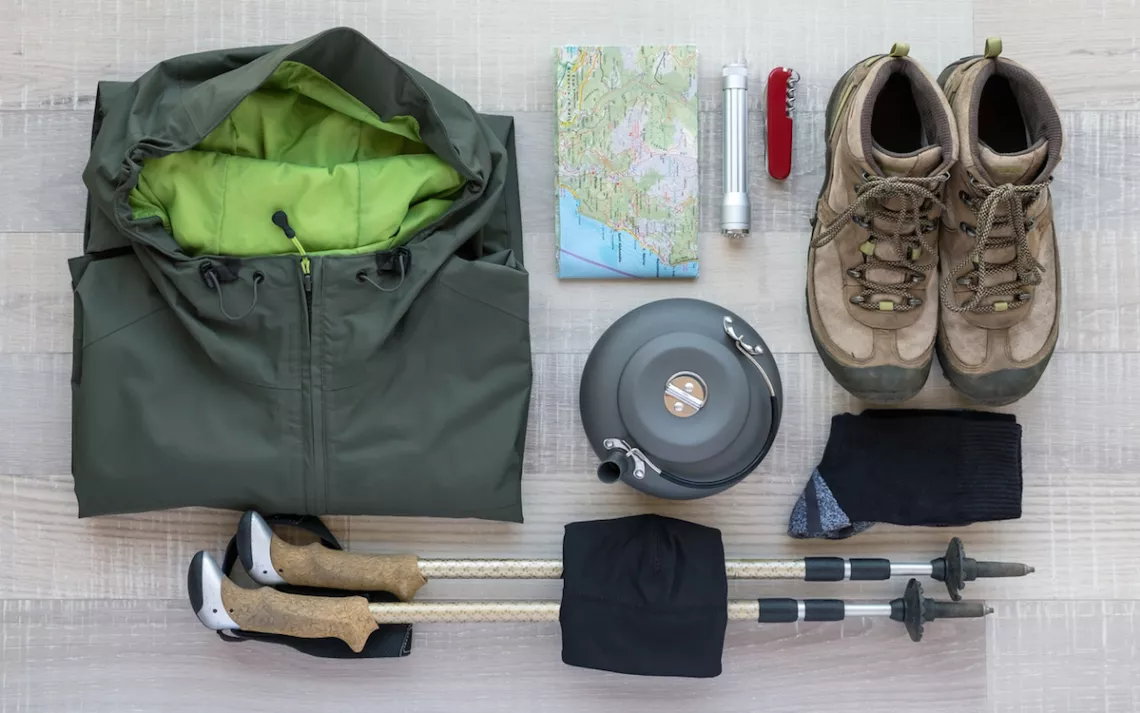Adventure Reincarnation: Outdoor Gear Giants Now Sell Used Goods
It’s a win for the planet and for your wallet, too
Outdoor adventure gear may be better than ever before, thanks to performance-enhancing and weather-shielding innovations that have outdoorsy types salivating. But if there’s anyone who cringes at the thought of yesterday’s gear populating a landfall, it’s Earth-loving adventurers. After all, one of the planet’s most pressing problems is our habitual over-consumption of clothes, gear, gadgets, and pretty much everything else.
Americans annually generate more than 15 million tons of used textile waste—an amount that has doubled over the past 20 years. Most manufacturers rely on our addiction to new stuff to fuel their business models. But in the past year, two leaders in the outdoor adventure space have made strides toward shifting that paradigm.
In April, Patagonia extended its Worn Wear blog—a forum for customers to share stories about repairing, reusing, and recycling garments—into a van that travels the country fixing people’s equipment. In September, the notion further evolved into a dedicated used-gear site featuring previously worn items customers have traded in for store credit. The idea, says Worn Wear manager Nellie Cohen, is not just to extend the lifetime of garments to reduce their footprint, but also to inspire people to change their relationship with stuff, to move away from a consumer mindset (that of one who buys and dispenses without regard) toward an owner mindset. “This is a person who invests in quality and maintains items,” says Cohen, who adds that Worn Wear aims to prove that there is a viable, profitable circular business model in reusing clothing. “We hope this inspires the whole apparel industry to create circular—as opposed to linear—ways of conducting business.”
The inspiration has proved to be contagious. Bargain-hunters rejoiced on October 13, when REI rolled out a similar experimental online beta store featuring only used gear. There, shoppers can peruse tents seeking a second life, as well as previously worn hiking boots, packs, climbing gloves, and more. The more well-worn a piece of gear is, the steeper the discount.
Here’s how it works: When customers return items (for whatever reason), REI professionals inspect them. Gear deemed still sellable is assigned a grade—“like new,” “lightly worn,” “moderately worn,” or “well worn.” (Patagonia, too, inspects goods before reselling and prices according to a tiered system.)
“We are a community committed to improving access to the outdoors, stewarding the places where we play and supporting happier and healthier lives,” wrote Vik Sahney, REI’s divisional vice president for sustainability, in a memo to staff about the new REI Co-op Used Gear Beta. “Very often, thanks in part to our 100 percent satisfaction guarantee on new products, we end up taking back product that is only lightly used. For years, we have sold this returned gear through our in-store Garage Sales, which are famous among REI Co-op members and draw huge lines.”
Garage-sale devotees should take comfort in the fact that REI will continue those member-exclusive events, which take place a few times a year in select locations. But those who aren’t members, don’t live near an REI, and/or don’t love long lines and the rush-and-grab pace of the Garages Sales will finally be privy, 24/7, to the same types of deals—and perhaps even better ones. Currently listed items include a half-priced Big Agnes tent, moderately used Salomon Speedcross trail runners marked down to less than a third of their original price, and a like-new Jetboil cooking system at about a $30 discount. “Too many products at Garage Sales never get sold for reasons we can easily fix with the right digital solution,” wrote Sahney. However, some items, like helmets and climbing hardware, won’t be sold online for safety liability reasons. Neither will bikes and boats (too difficult to ship) or sleeping bags (too hard to clean). Still, because REI sells some 1,400 different brands, the used-good store holds the potential to shift the entire outdoor industry business model.
REI is starting out with the small, beta program to see how it resonates. “We’ll proceed if we think this is something that will really make a difference in our members’ lives, and if it will significantly further the work we’ve been doing for decades to drive sustainability at scale,” Sahney wrote.
Patagonia, for its part, has already cleared that learning curve. The company launched a used-gear eBay channel back in 2011. “We’re glad we were on the forefront of the sharing economy—it influenced our decision to own the re-use experience more wholeheartedly,” Cohen says. “We have also seen, time and again, that every time we make decisions for the planet, they benefit the business.”
Here’s hoping other outdoor adventure brands take note—and that your days of trolling Craigslist for strangers hawking questionable used gear are numbered.
 The Magazine of The Sierra Club
The Magazine of The Sierra Club




